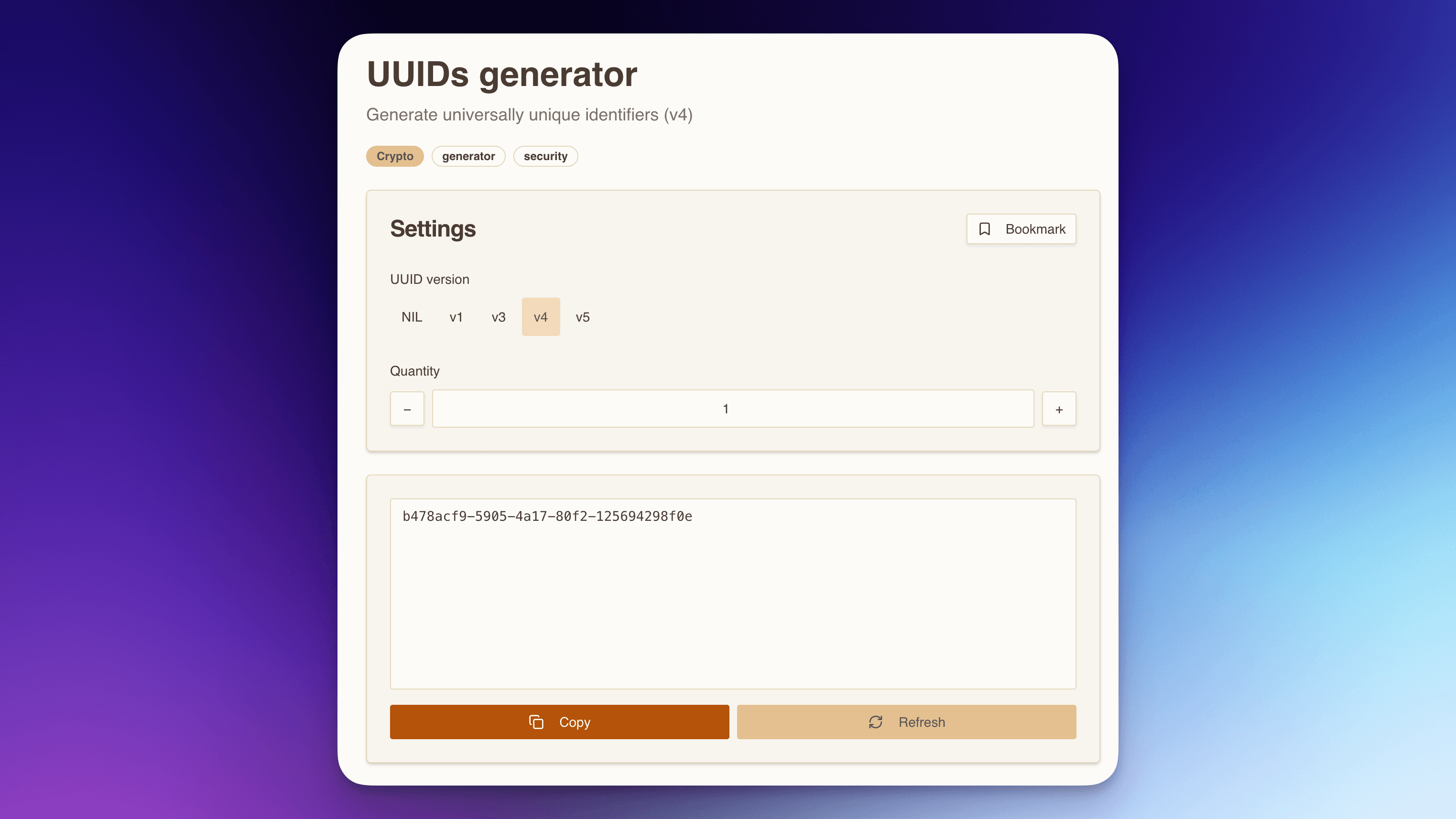Mastering UUIDs generator for Web Development
Discover how UUIDs and ULIDs can enhance your web development projects by ensuring unique identifiers across systems and users. Learn about their practical uses, direct tool links for generating these identifiers, and examples of how to integrate them into your applications.

UUIDs (Universally Unique Identifiers) and ULIDs (Universally Unique Lexicographically Sortable Identifiers) are essential tools in modern web development for creating unique identifiers. This article delves into how both can be effectively used in various scenarios, leveraging tools like the UUIDs generator and the ULID generator.
Understanding UUIDs and ULIDs
UUIDs are 128-bit numbers used universally to identify information in computer systems. The UUIDs generator offers a simple way to create these identifiers. ULIDs, on the other hand, are similar to UUIDs but are designed to be sortable and more readable. The ULID generator provides a method to generate these identifiers as well.
Practical Use Cases and Examples
Generating Unique IDs for Database Records
When creating a new user record in a database, ensuring that each entry has a unique identifier is crucial. Here’s how you can use the UUID generator tool:
// Example POST request to a server using Fetch API
fetch('https://webmasterdb.com/tools/uuids-generator')
.then(response => response.text())
.then(uuid => {
console.log("Generated UUID:", uuid);
saveUser({ uuid, name: "John Doe" });
});
function saveUser(user) {
// database saving logic here
}
Creating Temporary File Names
Temporary files are common in web applications, especially for uploads or batch processing. Using ULIDs can help avoid collisions and maintain order:
fetch('https://webmasterdb.com/tools/ulid-generator')
.then(response => response.text())
.then(ulid => {
const tempFileName = `temp_${ulid}.txt`;
console.log("Temporary file name:", tempFileName);
// Proceed with using the file name for operations
});
When to Use UUID vs. ULID
While both identifiers are unique, ULIDs provide the added advantage of being sortable, which can be beneficial for logging systems or any application where time-based sorting is useful. UUIDs are more traditional and are widely supported across different platforms.
Leveraging Tools for Maximum Efficiency
Using the UUIDs generator and the ULID generator directly via URLs in your applications can streamline workflows and ensure consistency in unique identifier generation. Integrating these tools via API calls or simple HTTP requests can greatly enhance the efficiency of your application development process.
In conclusion, UUIDs and ULIDs are powerful tools for ensuring data uniqueness across distributed systems. By utilizing dedicated generators like those described, developers can effortlessly integrate unique ID generation into their projects, enhancing data integrity and system reliability. Whether you choose UUIDs for their traditional support or ULIDs for their sortable nature depends on your specific project needs.
External References
- RFC 4122: A Universally Unique IDentifier (UUID) URN Namespace — Defines the UUID standard used across computing systems.
- ULID Specification — Official specification describing ULID format and encoding.
- UUIDs Generator Tool — Online tool for generating UUIDs.
- ULID Generator Tool — Online tool for generating ULIDs.